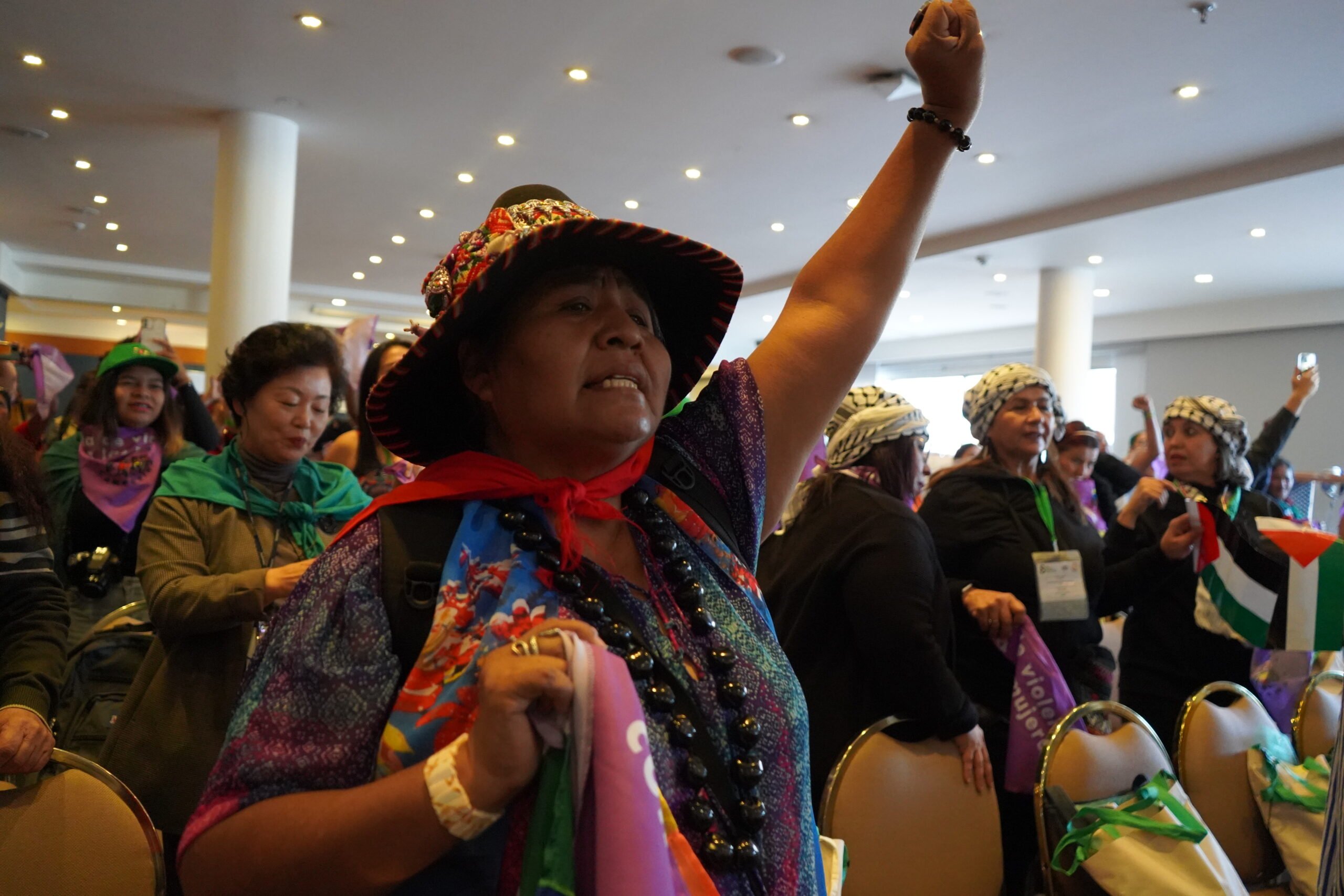The 6th Women’s Assembly was one of the first spaces of the 8th International Conference of La Via Campesina (LVC). It was a moment of reunion: the first assembly and the first conference held since the pandemic. The assembly took place on December 2nd, a day after the Youth Assembly, which opened the Conference, and on the same day of two other spaces that were held for the first time: the space for men against patriarchy and the Sexual Diversity Assembly, which are also consequences of feminist building within La Via Campesina.
During the mística that opened the assembly, women walked into the room holding the flags of their movements, showing the power of the connection between local and global struggles, as well as of the alliances between organizations. In the afternoon, another mística paid tribute to Nalu Faria, a World March of Women sister who passed away in October 2023, for her valuable contributions to feminism and La Via Campesina women’s self-organizing efforts.
30 Years of La Via Campesina
While women took part in the establishment and building of La Via Campesina in different territories and international spaces, a collective struggle was necessary to get space and exposure, as well as to push feminism as a struggle that cannot be separated from the peasant struggle and the struggles of the peoples of the world. This history was discussed in the first panel of the Assembly, called “30 years of LVC: what are women’s contributions to the process and how can we continue to move forward?” with Nettie Wiebe (National Farmers Union, Canada), Anuka de Silva (Movement for Land and Agricultural Reform, Sri Lanka), and Pancha Rodríguez (National Association of Rural and Indigenous Women of Chile).
“We care for the land and the soil. We are bringing more women who suffer in rural areas. Every region suffers differently and deeply because of capitalism.”
Anuka de Silva
Nettie addressed the history of women’s participation in La Via Campesina since its foundation. She recalled that, in 1993, the declaration of the launch of the organization did not mention women, and that in the conference held in Mexico in 1996, women were only 20-25 percent of the delegates. That moment, the International Committee was initially established with seven men. The all-male board was not well-received, because it did not represent La Via Campesina in the territories, where women have always been very important. The list was then discussed again, and that was how Nettie joined it, as the only woman in the committee. “My role was not only to be a regional coordinator, but to make women be heard and have a place in La Via Campesina as equals in the struggle. It was not a one-person work—it was the work of all of us,” she said.
The first women’s assembly was held in 2000, in the conference in Bangalore, India, where important things were defined, starting structural changes, like gender parity in coordinating boards. “That allowed us to better understand solidarity, for being inclusive,” Nettie argues, adding that “it’s a gift for La Via Campesina that we are all here.”
“We don’t have to apologize for anything or ask for permission or think that we are secondary. We are key to this movement. We bring lifeblood to this movement, as well as good analyses and political work in our communities and globally.”
Nettie Wiebe
The conversation about gender parity in the organization is part of the discussion about the sexual division of labor, which La Via Campesina women have been addressing in their spaces of action and reflection. “In most rural homes, it’s women’s labor that actually supports them, which is also unfair, because there should be parity: everyone should have the same responsibility around the house, men should recognize us but also work with us, taking care of the children and the crops, to actually build a world of solidarity,” Pancha argues.
READ THE FULL ARTICLE ON CAPIRE
This post is also available in Français.

